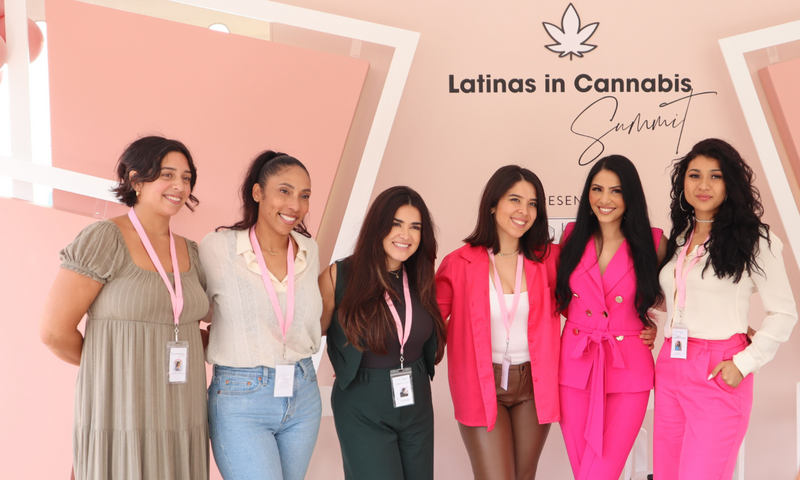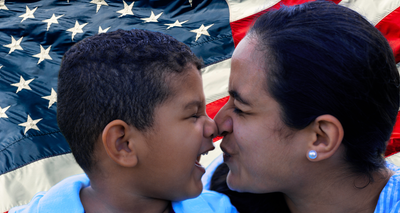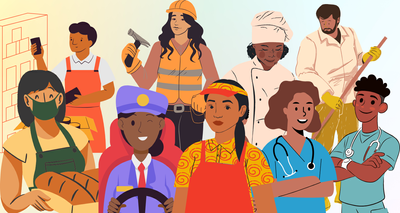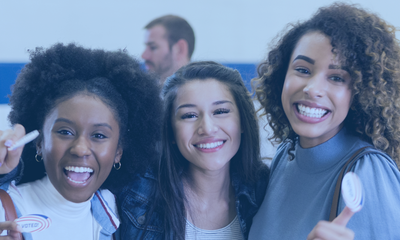One would think with the legalization of cannabis in California would lessen the stigma and misconceptions for Latinas who consume cannabis, but the disparity of safe spaces for Latinas to smoke recreationally and without judgment from their families or neighbors still happens.
On any given weekend you find Chelly XiCali (pronounced Chee-Ka-lee) in her downtown Los Angeles studio making XiCali Products, a vegan and eco-friendly CBD wellness brand for skincare, anxiety and Pain Management or find her hosting one of her many monthly events bringing Latinas in cannabis together.
The truth is XiCali has slowly but surely been building a community of Latinas and cannabis since 2022 about the time that COVID restrictions started lifting. This East L.A. native, Garfield High School graduate and Chicano Studies major isn't new to community building who has been a community organizer since she was 14 years old. Her community consists of events such as customer appreciation nights, “Canna Jefa” panels, Patriarchy feminists workshops, and her signature “Puff n Paint” and queer and body inclusive clothing swaps with a free self-serve bong bar.
When I asked her about cannabis and her tenant studio contract rules because of the cannabis consumption and she said that the tenant contract includes not selling cannabis which she proudly said she doesn't sell it but gives it for free.
Her studio has been up and running for two years with this year packed with events. XiCali said if it wasn’t for her supporters, customers and the demand for a space like hers she wouldn’t be in business.
“Latinas are the fastest growing group in the country and [there] aren't many spaces like this at the intersection of Latina and cannabis,” XiCali told Boldlatina.
At her monthly “Gordita Y Bonita Free Plus Size Clothing Swap” event held at the beginning of the month women, queer and non-binary people came from across Los Angeles County some traveled 45 minutes to an hour to her studio. Gordita Y Bonita means chubby girl and beautiful, emphasis on the “and” meaning you can be both. The conversation is free flowing and blazing, literally. People swap clothes, connections and hit up the bong bar while enjoying community.
“[There are spaces] maybe one and done but consistent and rooted like mine there is a scarcity of spaces like these,” XiCali explained on why she renewed another two-year rental lease on her studio.
At the event, we overheard conversations from Latinas wanting to freely smoke in their home, but are morally criminalized by neighbors and some told me they have to walk down the street to enjoy a hit from a blunt because their neighbors have complained. They vented about how unfair it is that they have to go to a street coroner like a maliante or criminal to enjoy their cannabis. Their biggest sentiment is the resentment they feel after having to hide consuming cannabis from family gatherings while alcohol flows freely.
The room is packed with not only the queer community but abuelas/grandmothers, Tias/Aunts and adolescents with their parents, and young professionals. XiCali means when she said her space is inclusive for everyone including families.
Latinas empowering Latinas in Cannabis
Canna Jefas have not only destigmatizing perceptions society have of Latinas in cannabis by taking space where typically canna bros manspread but also show up in diverse backgrounds such as multi-Cannapreneur Susie Plascencia who has been a strong voice for Latinas in cannabis, is a cannabis activist and owns the glass bong company Mota glass. Plascencia along with other colleagues became viral in 2020, garnering Los Angeles Time coverage, after they exposed the shameless appropriation of Mexican culture by a white-owned cannabrand who tried to pass as Latina-owned. Many know her from starting the instagram page @Latinas_Cannabis and for creating the National Latinas in Cannabis Day on September 30th 2021.
Media has helped society portray Latinas in cannabis as formally uneducated and a gross portrayal of a baked “Cheech and Chong” character or even worse Latinas in cannabis come from all backgrounds including street and book educated and the best part is everyone comes together for the love of this plantita.
Plascencia started the Latinas in Cannabis community because of the social issues, disparity in lack of equity and cannabis ownership among the Latina community she told Boldlatina back in a 2021 interview. Fast forward to 2023, where she organized possibly the first Latinas in Cannabis Summit or conference of its kind in the U.S. which sold out in days. It is no surprise there is a demand for a summit like this when National Hispanic Cannabis Council (NHCC) released a 2023 study finding Latinos spend $2.5 billion dollars on Cannabis.
The summit gathered 80 Latinas from across California and Arizona to sit in panels with talented “canna jefas” and spoke about breaking into the industry to marketing to cannabis and motherhood.
Full disclosure, Boldlatina was a sponsor for this event.
Throughout the event Latinas had a catered bong bar with strains and “nuggs” or cannabis buds from a local Latino-owned dispensary. People smoked from bongs, blunts and vapes freely without judgment. The only judgment might have been from waiting in line for tacos at the pop-up vendor while hungry people order two or six tacos con todo with everything.
“I was a ‘closeted stoner’ after I graduated from USC (University of Southern California) and worked in the corporate world, I would smoke a lot and thought I wouldn’t be taken seriously,” said Plascencia about feeling like she couldn't safely be herself.
One of the stigmas that is the harshest and not discussed often is cannabis use and motherhood. The panel called “Canna-mamahood” spoke about traumatic experiences with the judicial and healthcare system. Panelist and CEO of Luna Vibe med-trained esthetician Brandi J. Andrews-Yianacopolus spoke about how her joy after birth was taken when a prescription oversight by a nurse led to assuming she was on drugs and had Child Protective Services called on her. The prescription was a doctor given sleep-aid.
“Having the trauma of that and just going through pregnancy and being tested for that [sleep aid] and knowing that I had smoked maybe once or twice and they may take my child because of it,” said Andrews-Yianacopolus who identifies as queer and a Black and Mexican-American told Boldlatina.
This led to her having anxiety over cannabis she had consumed in the previous months.
The reina of hemp herself Sue Carlton known as “Ranchera Mami” is the first Latina in the U.S. to create hemp genetics and own an award-winning cannabis and hemp farm called Ranchera Familia in the Sierra Mountains of Fresno County. She provides educational seminars and retreats for young aspiring “ranchera mamis”.
Boldlatina interviewed and spotlighted Carlton back in 2021 then she was under Sue Surabian where she said she wanted better representations for Latina business owners and Latina farmers employment and training.
“Which is why we are and have been continuously saving to build our dream educational retreat center directly on our ranch. Our hopes to be able to provide young women of color a place to learn, in a healthy positive environment inclusive of farming hemp & building a regenerative relationship between us, our land and animals,” Carlton told Boldlatina about being avid Latinas in cannabis community builder.
More and more Latinas are not only consuming cannabis but advocating and creating non-judgmental spaces where they can smoke and consume cannabis in sisterhood. Normalizing conversations on what cannabis means for the community but also its history and why Latinx and our families have looked down upon cannabis but accepted or normalized alcohol at family functions is one of the conversations Latinas in cannabis are having.
“Education is key. Education and community is key and providing the spaces to especially the underprivileged. It’s time to make space so everyone has a seat at the table,” proclaimed Andrews-Yianacopolus to Boldlatina after her experience.






